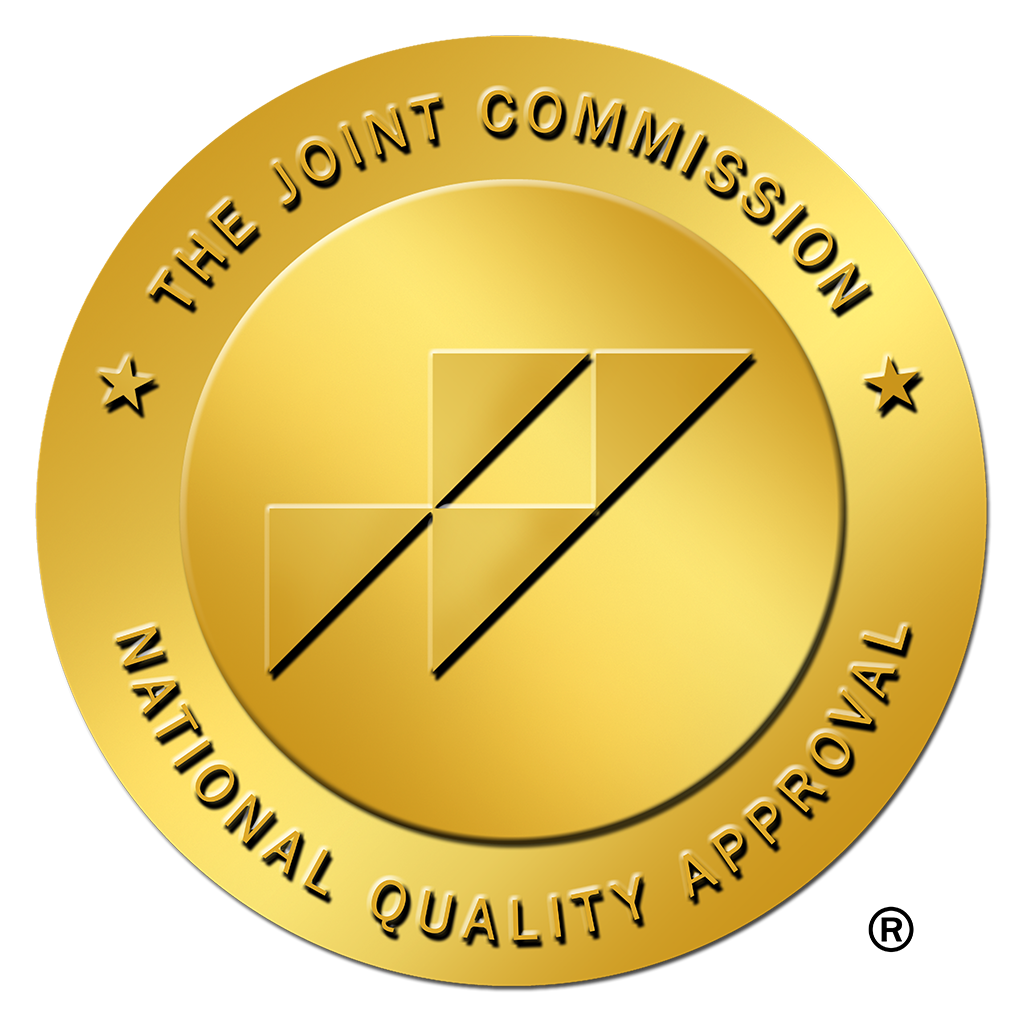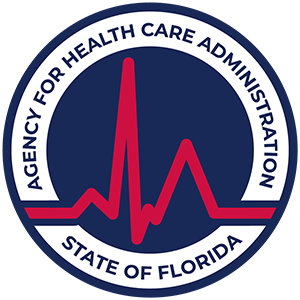Severe depression is a profoundly debilitating mental disorder that affects millions worldwide. It is characterized by intense and persistent feelings of hopelessness, despair, and a lack of interest in daily activities. This can drastically impair one’s ability to function.
The gravity of this condition lies not only in its symptoms but also in its widespread prevalence:
According to the World Health Organization, depression is one of the leading causes of disability globally. Severe cases often lead to significant personal suffering and can strain relationships, work performance, and overall quality of life.
Addressing the severity of this mental disorder is crucial for fostering understanding and compassion. This article delves into various aspects of severe depression:
- Understanding Severe Depression: Symptomatology, risk factors, and the heightened risk of suicide.
- Seeking Help: Importance of accurate diagnosis and available treatment options.
- Support and Coping: Strategies to enhance well-being while living with severe depression.
- Comprehensive Management: Emphasizing the need for a holistic approach to treatment and recovery.
Exploring these key areas aims to provide hope and guidance for those affected by severe depression and their loved ones.
Understanding Severe Depression: Symptoms, Risk Factors, and Suicide Risk
Severe depression is more than just feeling sad or having a bad day; it is a profound mental health condition that affects every aspect of an individual’s life. The symptoms of severe depression can be both pervasive and debilitating, often making daily functioning a significant challenge.
Symptoms of Severe Depression
Common Symptoms Include:
- Persistent Sadness or Low Mood: This is not just occasional sadness but an enduring feeling of deep sorrow or emptiness.
- Loss of Interest or Pleasure in Activities: Known as anhedonia, individuals often find that activities they once enjoyed no longer bring them pleasure.
- Changes in Appetite and Weight: This can manifest as either a loss of appetite leading to weight loss, or increased cravings and weight gain.
- Sleep Problems: Insomnia (difficulty sleeping) or hypersomnia (sleeping too much) are prevalent. Both can exacerbate the feelings of fatigue and low energy.
- Fatigue and Loss of Energy: Even simple tasks may feel insurmountable, leading to decreased productivity and withdrawal from responsibilities.
- Feelings of Worthlessness or Excessive Guilt: These emotions are often disproportionate to the actual situation and can lead to self-blame.
- Difficulty Concentrating: Trouble focusing on tasks, making decisions, or remembering details is common.
- Physical Symptoms: Such as unexplained aches and pains, which do not respond to treatment.
These symptoms not only interfere with daily activities but also impact personal relationships, work performance, and overall quality of life. It’s important to recognize these signs early to seek appropriate help.
Heightened Suicide Risk: Understanding the Connection in Severe Depression
The relationship between severe depression and suicide risk is deeply interwoven. Individuals with severe depression are at a significantly higher risk for suicidal thoughts and behaviors due to several underlying psychological mechanisms.
Key Factors Contributing to Suicide Risk:
- Hopelessness: A pervasive sense that things will never get better significantly raises the risk of suicide.
- Isolation: Depressed individuals often withdraw from social interactions, leading to loneliness which intensifies depressive feelings.
- Previous Suicide Attempts: Those who have attempted suicide before are at higher risk for future attempts.
- Substance Abuse: The use of drugs or alcohol can increase impulsivity and reduce inhibitions, making suicidal actions more likely.
Warning Signs of Suicide:
- Talking About Death or Suicide: Any mention of wanting to die should be taken seriously.
- Seeking Means for Self-Harm: Actions such as purchasing weapons or hoarding medications are critical red flags.
- Expressing Hopelessness or Having No Reason to Live: Statements like “What’s the point?” indicate deep despair.
- Dramatic Mood Changes: Sudden shifts from extreme sadness to calmness might signal that a decision has been made about ending their life.
- Engaging in Risky Behaviors: Increased substance abuse or reckless driving can indicate a disregard for safety.
Recognizing these symptoms and warning signs is crucial for timely intervention. Encouraging open communication about mental health struggles can build a supportive environment where individuals feel safe seeking help.
2. Heightened Suicide Risk: Understanding the Connection in Severe Depression
Severe depression often brings an overwhelming sense of despair and hopelessness, fostering a fertile ground for suicidal thoughts and actions. The interplay of various symptoms and psychological mechanisms makes individuals with severe depression particularly vulnerable to thoughts of death or suicide.
Psychological Mechanisms
- Feelings of Hopelessness: A pervasive sense of hopelessness often grips those suffering from severe depression, making the future seem bleak and unchangeable. This emotional state can drive the desire for an escape through suicide.
- Isolation: Severe depression frequently leads to social withdrawal and isolation. The lack of support and connection can exacerbate feelings of loneliness, reinforcing suicidal tendencies.
- Difficulty Leaving the House: The energy drain caused by severe depression can make even simple tasks feel insurmountable. Difficulty leaving the house contributes to isolation, worsening depressive symptoms and increasing suicide risk.
- Cognitive Distortions: Depressive thinking patterns often involve negative biases and rumination on perceived failures or shortcomings. These cognitive distortions heighten the likelihood of self-harm.
Symptoms Contributing to Suicide Risk
Certain symptoms commonly found in severe depression can also contribute to an increased risk of suicide:
- Appetite/Weight Loss: Significant changes in appetite or weight can reflect severe internal turmoil. Malnutrition or rapid weight loss affects overall well-being, potentially deepening depressive states.
- Sleep Problems: Chronic sleep disturbances are common in severe depression, leading to exhaustion and diminished coping abilities. Insomnia or hypersomnia further clouds judgment, making suicidal thoughts more persistent.
- Thoughts of Death/Suicide: Persistent thoughts about death or suicide are hallmark symptoms of severe depression. These thoughts often feel relentless, compelling individuals to consider taking drastic actions.
Risk Factors for Suicide in Severe Depression
Understanding specific risk factors can help identify those at heightened risk:
- Substance Abuse History: Individuals with a history of substance abuse may turn to drugs or alcohol as a coping mechanism, which can impair judgment and increase impulsivity.
- Firearms in the Home: Access to firearms significantly raises the risk of suicide completion due to the lethality and immediacy they provide.
- Incarceration: Experiences related to incarceration such as trauma, shame, and isolation contribute to elevated suicide risks among individuals with severe depression.
Warning Signs of Suicide in Severe Depression
Recognizing warning signs is crucial for timely intervention:
“The presence of any one factor does not mean someone will attempt suicide; however, multiple warning signs should prompt immediate concern.”
- Expressing feelings of hopelessness
- Talking about wanting to die
- Increasing social isolation
- Giving away prized possessions
- Sudden mood improvements after a depressive period
- Engaging in risky or self-destructive behaviors
By understanding these critical aspects of severe depression and their connection to suicide risk, we can better support those who are struggling through attentive care and timely intervention.
Seeking Help: Diagnosis, Treatment, and Recovery from Severe Depression
3. Diagnosing Severe Depression: When to Seek Professional Help
Severe depression, often referred to as major depressive disorder (MDD), requires a precise and comprehensive diagnosis by a qualified healthcare professional. This section explores the importance of accurate diagnosis, the diagnostic criteria, and when to seek professional help.
Importance of Accurate Diagnosis
An accurate diagnosis is crucial for several reasons:
- Personalized Treatment Plans: Tailoring treatment to suit individual needs depends on an accurate understanding of the severity and specific nature of the depression.
- Early Intervention: Recognizing severe depression early can prevent it from worsening and reduce the risk of complications such as suicidal ideation.
- Reduction of Misdiagnosis: Proper diagnostic measures help differentiate severe depression from other mental health conditions that might present similar symptoms, such as bipolar disorder or anxiety disorders.
Diagnostic Criteria for Severe Depression
Healthcare professionals use established criteria to diagnose severe depression. The most commonly used guidelines are from the Diagnostic and Statistical Manual of Mental Disorders (DSM-5). According to DSM-5, a person must experience at least five of the following symptoms during the same 2-week period, with at least one symptom being either depressed mood or loss of interest/pleasure:
- Depressed Mood: Feeling sad or empty most of the day, nearly every day.
- Loss of Interest or Pleasure: Markedly diminished interest in all or almost all activities.
- Significant Weight Change: Unintentional weight loss or gain.
- Insomnia or Hypersomnia: Difficulty sleeping or oversleeping nearly every day.
- Psychomotor Agitation or Retardation: Observable restlessness or slowed physical movements.
- Fatigue: Persistent tiredness and lack of energy.
- Feelings of Worthlessness: Excessive guilt or feelings of worthlessness.
- Difficulty Concentrating: Impaired ability to think, concentrate, or make decisions.
- Recurrent Thoughts of Death: Suicidal ideation without a specific plan, or a suicide attempt.
These symptoms must cause significant distress or impairment in social, occupational, or other important areas of functioning.
Medical Evaluation
A thorough medical evaluation is essential for diagnosing severe depression. This typically involves:
- Clinical Interview:
- Discussion about symptoms, medical history, family history of mental health issues, lifestyle factors.
- Physical Examination:
- To rule out medical conditions that might mimic depressive symptoms (e.g., thyroid disorders).
- Laboratory Tests:
- Blood tests to screen for underlying medical conditions.
- Psychological Assessment Tools:
- Standardized questionnaires and rating scales like the Beck Depression Inventory (BDI) to quantify symptom severity.
When to Seek Professional Help
Recognizing when to seek professional help is pivotal:
- Persistent Symptoms: If depressive symptoms persist for more than two weeks and interfere with daily life functions.
- Severity: When symptoms are severe enough to cause significant distress or impairments in work, school, relationships.
- Suicidal Thoughts: Immediate help is necessary if there are any thoughts or plans about self-harm.
Seeking help from healthcare professionals like psychiatrists, psychologists, and primary care doctors ensures that individuals receive the appropriate care they need based on their unique situations. Early intervention can pave the way towards recovery and better management of severe depression.
4. Approaches to Treating Severe Depression
Treatment options for severe depression are diverse and tailored to meet the unique needs of each individual. Recognizing the multifaceted nature of this mental health condition, a combination of mainstay and adjunctive treatment modalities is often employed.
Medical Evaluation and Diagnostic Criteria
A comprehensive medical evaluation is essential to determine the most appropriate treatment plan. This step ensures that the chosen therapeutic approaches align with the patient’s specific symptoms and overall health status.
Medication
Medication plays a pivotal role in managing severe depression:
- Antidepressants: These include selective serotonin reuptake inhibitors (SSRIs), serotonin-norepinephrine reuptake inhibitors (SNRIs), and tricyclic antidepressants (TCAs). They work by balancing neurotransmitters in the brain, which can help alleviate depressive symptoms.
- Mood Stabilizers: Often prescribed when depression coexists with bipolar disorder.
- Antipsychotics: Sometimes used in conjunction with antidepressants, especially if there are symptoms of psychosis or treatment-resistant depression.
Each medication comes with its own set of benefits and potential side effects, making close monitoring by a healthcare provider vital.
Cognitive Behavior Therapy (CBT)
Cognitive Behavior Therapy (CBT) is a widely used psychological intervention. It focuses on identifying and challenging negative thought patterns and behaviors:
- Helps improve coping mechanisms.
- Empowers individuals to change their thinking patterns.
- Can be delivered in individual or group settings.
Light Therapy
For those experiencing seasonal affective disorder (SAD), light therapy can be particularly beneficial. This involves:
- Exposure to bright light that mimics natural sunlight.
- Regulating mood and sleep patterns through consistent sessions.
Electroconvulsive Therapy (ECT)
In cases where other treatments have not been effective, Electroconvulsive Therapy (ECT) may be considered:
- Involves administering small electric currents through the brain.
- Often results in rapid improvement of severe depressive symptoms.
- Requires careful consideration due to potential side effects like memory loss.
Repetitive Transcranial Magnetic Stimulation (rTMS)
Another advanced treatment option is Repetitive Transcranial Magnetic Stimulation (rTMS):
- Uses magnetic fields to stimulate nerve cells in the brain.
- Non-invasive with fewer side effects compared to ECT.
- Typically involves multiple sessions over several weeks.
Adjunctive Strategies
Complementary therapies can enhance well-being alongside conventional treatments:
- Meditation: Practicing mindfulness meditation can reduce stress and improve emotional regulation.
“Mindfulness meditation helps me center my thoughts and manage my depressive episodes more effectively.” – A patient testimonial
- Acupuncture: Some find relief through acupuncture, which can promote relaxation and reduce anxiety.
Each treatment approach serves as a piece of the puzzle in managing severe depression. The combination of medical interventions, therapeutic techniques, and lifestyle modifications creates a holistic framework for recovery. The journey towards healing is personal and requires compassionate support from healthcare providers, loved ones, and oneself.
Support and Coping: Living with Severe Depression
Living with severe depression is profoundly challenging. While primary treatment approaches such as medication and psychotherapy are crucial, incorporating adjunctive strategies can significantly enhance well-being and support recovery. These lifestyle modifications and self-help techniques play a complementary role in promoting mental health.
Lifestyle Changes
- Exercise: Regular physical activity is a powerful tool in managing severe depression. Engaging in activities like walking, jogging, yoga, or swimming helps release endorphins, the body’s natural mood lifters. Studies have shown that exercise can be just as effective as antidepressants for some individuals.
- Nutrition: A balanced diet rich in fruits, vegetables, lean proteins, and whole grains can impact mood positively. Omega-3 fatty acids, found in fish like salmon and walnuts, are particularly beneficial for brain health. Avoiding alcohol and excessive caffeine consumption is also important as they can exacerbate depressive symptoms.
- Sleep Hygiene: Establishing a regular sleep routine by going to bed and waking up at the same time each day can improve sleep quality. Creating a restful environment by keeping the bedroom dark, cool, and quiet is also essential.
Self-Care Strategies
- Mindfulness: Practicing mindfulness meditation can help individuals with severe depression focus on the present moment rather than ruminating on past or future worries. Techniques such as deep breathing exercises, progressive muscle relaxation, and guided imagery can reduce stress levels.
- Journaling: Writing about thoughts and feelings regularly can serve as an emotional outlet. It helps in identifying patterns of negative thinking and provides insight into triggers of depressive episodes.
- Hobbies and Interests: Engaging in activities that bring joy or provide a sense of accomplishment can boost self-esteem and create positive experiences to counterbalance depressive feelings.
Social Support
- Connecting with Loved Ones: Maintaining relationships with family and friends provides emotional support and reduces feelings of isolation. Sharing experiences with trusted individuals helps alleviate the burden of depression.
- Support Groups: Joining groups where people share similar struggles offers a sense of community. Online forums or local meet-ups can provide valuable peer support and practical advice for coping strategies.
Professional Guidance
While these adjunctive strategies are beneficial, they should not replace professional treatment but rather complement it. Consulting with healthcare providers ensures that these lifestyle changes effectively integrate into one’s overall treatment plan.
“The journey through severe depression requires patience, persistence, and an array of supportive measures.”
The Importance of a Comprehensive Approach to Severe Depression Management
Addressing severe depression requires a multi-faceted approach that encompasses various aspects of mental health and recovery.
Key Elements of a Comprehensive Approach:
- Professional Support: Consulting with healthcare providers ensures an accurate diagnosis and appropriate treatment plans tailored to individual needs. This may include medications, therapies, or a combination of both.
- Therapeutic Interventions: Psychotherapy, such as Cognitive Behavioral Therapy (CBT) or Dialectical Behavior Therapy (DBT), plays a crucial role in helping individuals understand and manage their symptoms.
- Medication: Antidepressants and other medications can be effective in managing severe depression, but it is essential for these to be prescribed and monitored by a healthcare professional.
- Lifestyle Modifications: Incorporating regular physical activity, maintaining a balanced diet, and ensuring adequate sleep can significantly enhance overall well-being.
- Support Systems: Engaging with support groups, family, and friends provides emotional backing and practical help during difficult times.
- Mindfulness and Self-Care Practices: Techniques such as mindfulness meditation, yoga, and other self-care practices can reduce stress levels and promote mental clarity.
Holistic Perspective:
A comprehensive strategy acknowledges the importance of treating the whole person—mind, body, and spirit. This holistic perspective not only aims to alleviate symptoms but also focuses on fostering resilience and promoting long-term recovery from severe depression. Each individual’s journey is unique; thus, personalized care plans that adapt to changing needs over time are vital for sustained mental health improvement.
Embracing this multifaceted approach creates a supportive environment where individuals feel empowered to navigate their path towards recovery.
Conclusion
Recovering from severe depression may seem overwhelming, but there is hope and healing available. It’s crucial to reach out to a professional for assistance during this process. They can provide an accurate diagnosis and create a personalized treatment plan that suits your specific needs.
The support of loved ones is also essential. When family and friends show understanding and compassion, it can have a significant impact, offering emotional strength and motivation.
Remember: You don’t have to face severe depression by yourself. Combining professional guidance with the warmth of supportive relationships promotes resilience and facilitates recovery.







